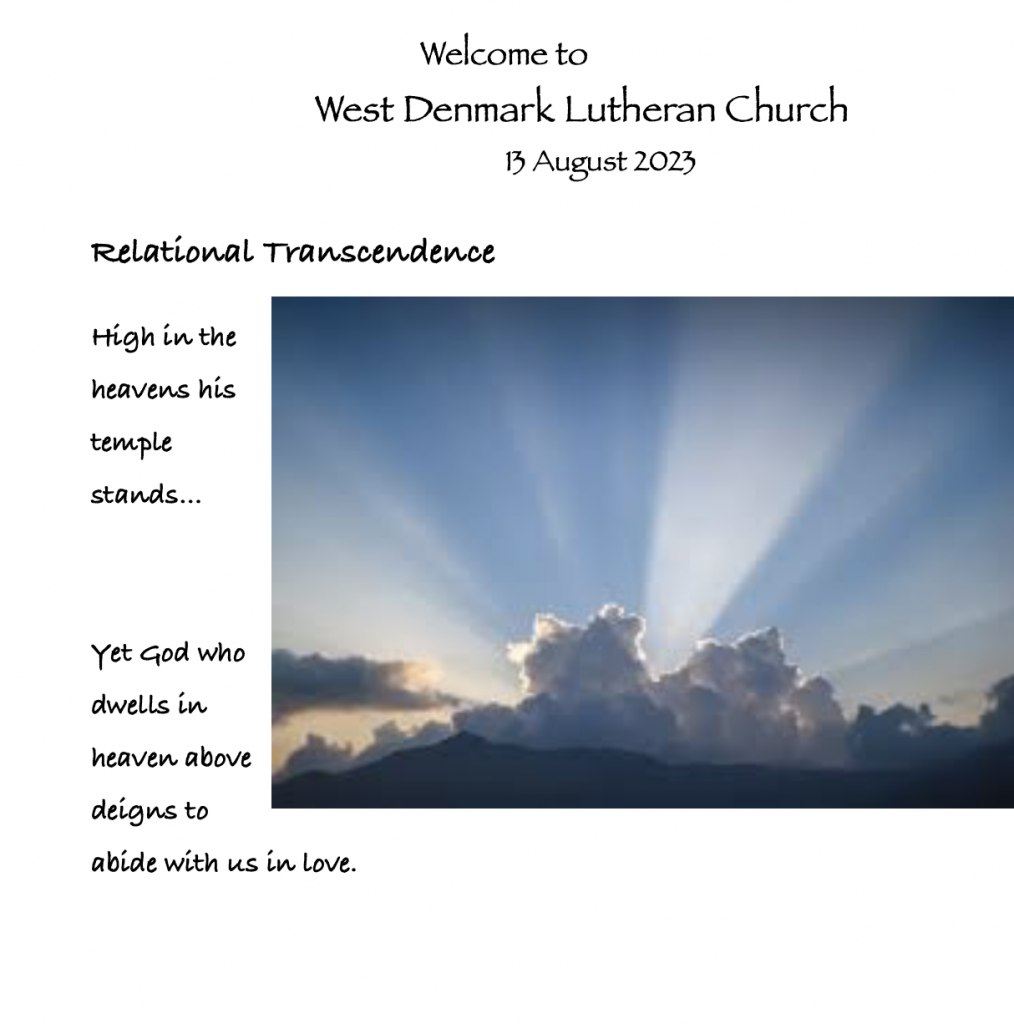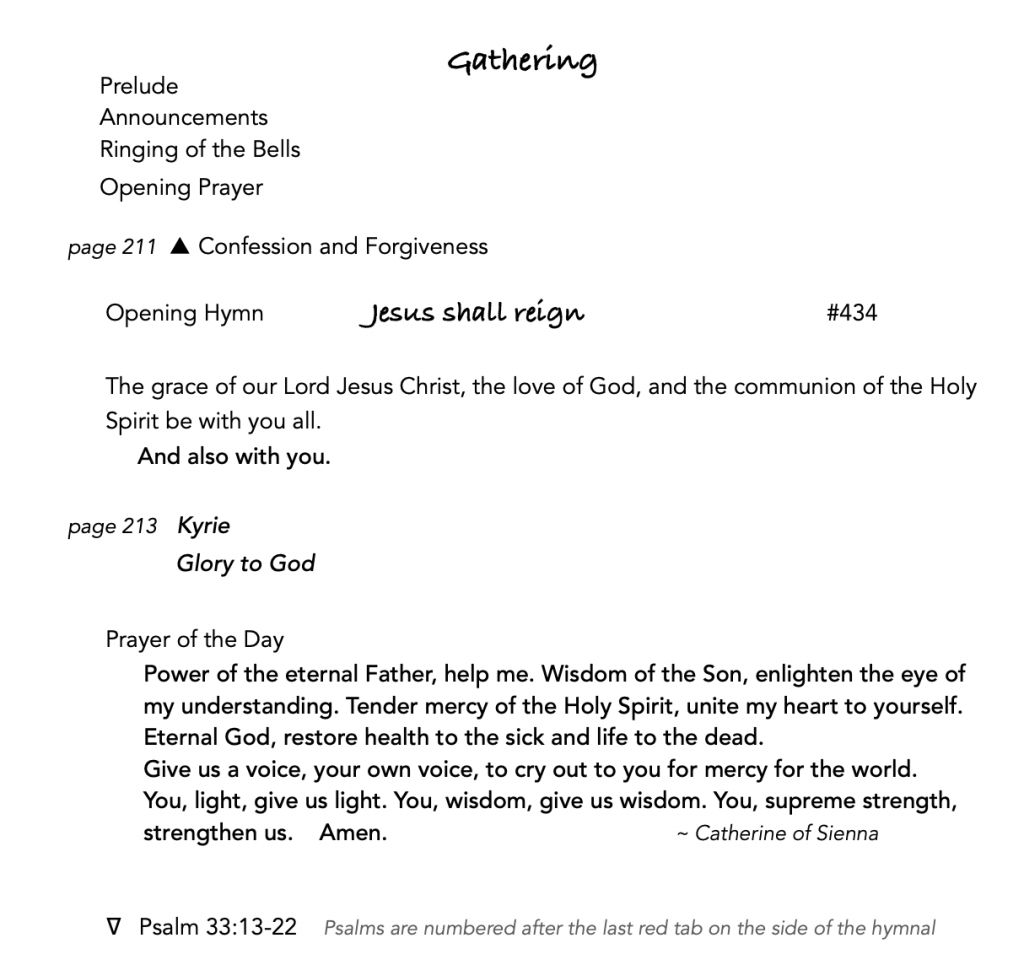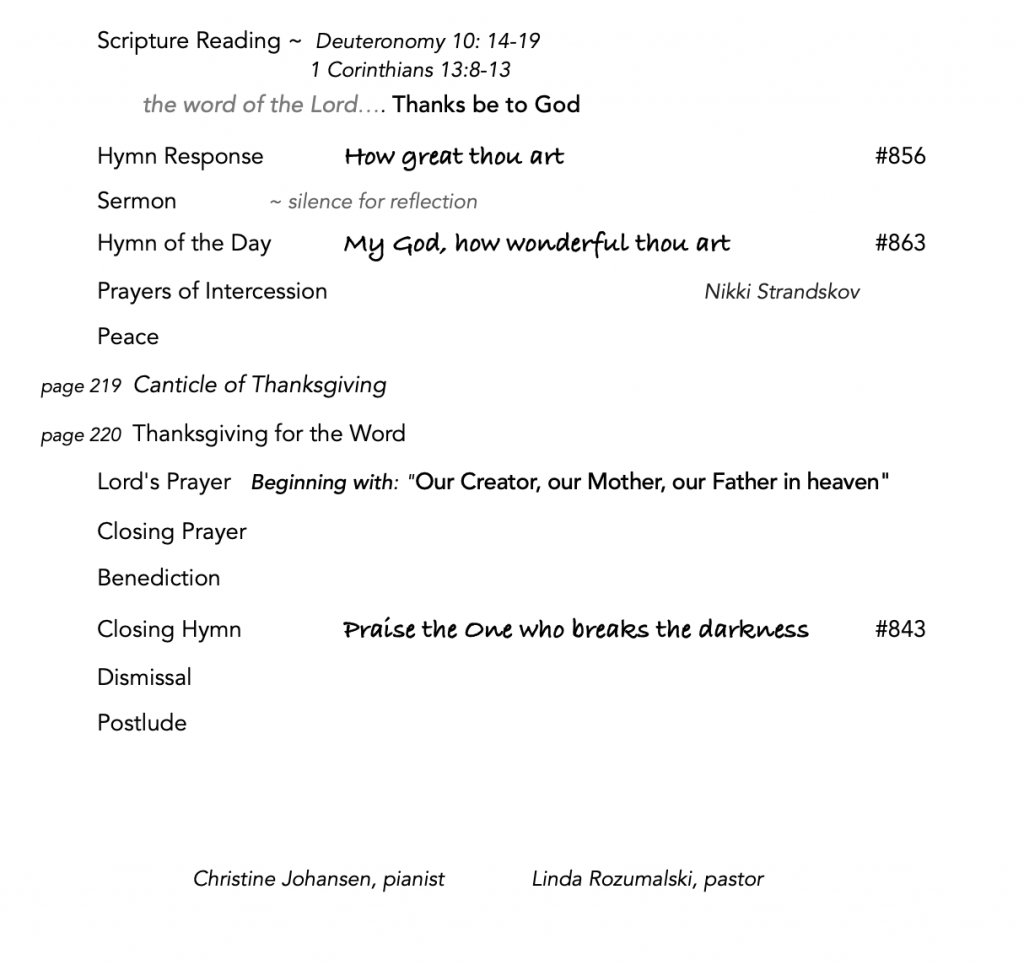Audio Recording



Deuteronomy 10:14
“Although heaven and the heaven of heavens belong to the Lord your God, the earth with all that is in it, 15yet the Lord set his heart in love on your ancestors and chose you, their descendants after them, out of all the peoples, as it is today. 16Circumcise, then, the foreskin of your heart, and do not be stubborn any longer. 17For the Lord your God is God of gods and Lord of lords, the great God, mighty and awesome, who is not partial and takes no bribe, 18who executes justice for the orphan and the widow, and who loves the strangers, providing them with food and clothing. 19You shall also love the stranger, for you were strangers in the land of Egypt.”
1 Corinthians 13:8
“Love never ends. But as for prophecies, they will come to an end; as for tongues, they will cease; as for knowledge, it will come to an end. 9For we know only in part, and we prophesy only in part; 10but when the complete comes, the partial will come to an end. 11When I was a child, I spoke like a child, I thought like a child, I reasoned like a child; when I became an adult, I put an end to childish ways. 12For now we see in a mirror, dimly, but then we will see face to face. Now I know only in part; then I will know fully, even as I have been fully known. 13And now faith, hope, and love abide, these three; and the greatest of these is love.”
As a reminder, last Sunday we took a look at the nature of God and the way God is in the world through the lens of sovereignty – and, mostly, through the Calvinist view of sovereignty because that is what is out and about in modern American religious talk – it’s what makes the news, it’s what we see in social media postings, it was the dominant religion that formed our nation and that influences it greatly still today.
White Nationalist Christianity thrives in the Calvinist setting. Why? Because a deterministic God is all-powerful, has known everything that was, is, and ever will be – in fact, God has preordained and predestined the path of all things according to divine purposes from before the beginning of the world. God’s wisdom is unsearchable. Everything we experience, think and do is God’s will – according to that tradition.
Therefore, the way things are, the status quo, was put in place through God’s will. And, therefore, any dissatisfaction with the status quo, any attempt to change it is against God’s will and is inherently evil: the status quo – where power is in the hands of white male Christians. American Christianity has become a fear-based, judgmental, exclusionary religious culture. Christ and Christ alone. Believe or be damned. Believe in what we believe, or be damned. The faithful of every other religion are damned. Heaven will just be Christians… who believe in like-minded ways.
I don’t believe what they believe. And neither do a whole passel of religious folks who do believe in God, in Jesus Christ, and in the Holy Spirit. So, what are our options regarding the sovereignty of God?
Well, they are life affirming and bold and biblically true!
Before I get into it, I do want to remind you that whatever you, I, or “they” believe about God is, as the apostle Paul pointed out, “seen through a glass darkly“. It’s all human grasping after understanding of something that we can understand only dimly, on the slant, out of the corner of your mind’s eye. We DO NOT KNOW anything about God. No one does. We aspire to know God through faith, through scripture, through sacraments, through prayer. We experience God through the Spirit’s urging or quickening, or insight in our inner, private lives. We teach and learn and inherit a religious and faith tradition in church. We wiggle it all around until it fits our particular personalities and needs. We change our beliefs over a lifetime of struggle and joy. This is natural and necessary. Again to quote Paul, “When I was a child I spoke like a child, I thought like a child, I reasoned like a child; when I became an adult, I put an end to childish ways… Now I know only in part; [but in the fullness of time,] I will know fully, even as I have been fully known.” We aren’t there yet.
Again, my point in this sermon series is to look at the big picture of how we think about God, ourselves and the world. Looking at God is called theology (the study of God); looking at ourselves is called anthropology (the study of human beings and cultures); looking at the world is ecology (the study of the eco systems that sustain all life). So, it is important! I think. And it is a faithful, faith-filled thing for each of us to spend time with in our own ways. This is my way and I have the microphone, but it is NOT the only faithful or true way. I hope it is both of those things, but in truth, I don’t know. As always, I’m interested in your thoughts.
So, on we go to an alternative view of sovereignty.
Terry Fretheim was the top of my three favorite professors at seminary. He taught Old Testament classes, wrote a bunch of textbooks on my shelves, and came here to West Denmark to preach for my ordination. He died a couple of years ago. He taught Old Testament through a relational view of God’s sovereignty because he believed God genuinely is in relationship to the earth and her creatures, and a genuine relationship requires give and take, mutuality, adaptability, the potential and expectation of transformation and change and growth. He taught God as the personal, loving, self-involving, passionate, relational Yahweh of Israel and Father of Jesus Christ, who became vulnerable in relation to the world through the covenantal relationships with the Israelites and, by extension, with all people.
Walter Brueggemann is another, perhaps better known, Old Testament professor and author. (Terry said Walter didn’t have a stray thought he didn’t publish! So there was a bit of professional competitive conversation between them.) As a memorial work after Terry’s death, Brueggemann wrote an essay on the theological differences between them which mostly had to do with sovereignty. I’m going to read a bit of what he wrote.
“Overtime, enough difference between us emerged to evoke an ongoing conversation about the ways in which the Old Testament is witness to the action of God in the world. Through his focus on creation themes, Terry drew the conclusion that God’s work in the world was a part of an ongoing process. He judged that in the governance of history, God’s action was characteristically in and through historical agents, and not directly. My attention was especially drawn to the narratives of Old Testament wherein God is portrayed as being the help of the helpless when “other helpers fail and comforts flee.” There, as in the Exodus narrative, God is seeming to act through direct agency. Terry’s judgment was that I have been excessively influenced by the “strong God” of John Calvin.”
This relational, transcendent theology is what makes sense to me. God is in a genuine relationship with us and the world and therefore is always adapting to the actions of humans. You can certainly see it in the story of Israel in the Biblical accounts where God’s chosen people had real choices to make. God led them and fed them coming out of Egypt, counseled and guided them through Moses, spoke to and warned them through the prophets, and, according to their own telling of it, acted on them, against them, through their enemies when they didn’t listen or act faithfully to his word. And when God came to humanity as one of us to show us what that Word was saying, what faithfulness to the Word looked like, God’s full relational vulnerability is on display. After Jesus was killed by his own people, God showed what sovereign love looks like by overcoming even death and promising that same act of powerful love for all who hear and trust his word. Jesus sent the Holy Spirit to be the continuance, the whisperer of God in our spirit’s ear. All of these avenues of God’s action are relational, dependent to varying degrees on our response. We can wear earplugs and turn away. We can follow to the best of our ability. We have real choices in how we behave and believe. Because God is faithful, God will work in relation to whatever response is given in order to keep opening up the future.
In relational sovereignty, the future is known to God, but unwritten. The end is known, but the way toward it is not predestined. What humans do makes a difference to God.
It’s like the GPS in google maps. If I type in my bother’s address in Detroit Lakes, two or three possible routes will appear between my present location and Dave’s house. I choose one and begin. But, if I miss an exit, or the road is detoured, the map kind of spins around for a bit while it recalculates, and a new blue path appears. It has adapted to my altered circumstances. I’m still going to get to Dave’s house, but the roads have changed. New options open in light of present circumstances. I believe God works that way in human history, working with and through whatever agents are available to create the best outcome given the choices that are available.
In relational theology, God honors the rules of nature established with creation. In that way God is self-limiting in power. Evil exists because people act in ways contrary to God’s will. Illness, hurricanes, wildfires, wars exist not to fulfill God’s purposes, but because that is the nature of life on our planet. Miracles do happen, help comes from unexpected quarters, there is a mysterious way of God woven through our lives like radio waves looking for transmitters. But the choices we make are real, and meaningful, and have consequences not only for us and on our neighbors and future generations, but for God in relationship with us and in action in the world.
Another article I read this week was by Roger E. Olson who says God is sovereign over God’s own sovereignty. I like that. He writes: “To say that God can’t be vulnerable, can’t limit himself, can’t restrain his power to make room for other powers, is, ironically, to deny God’s sovereign power. That is what’s missing from a Calvinistic determined view of sovereignty. If we believe that God has locked in the future, knows exactly what’s going to happen, then not only is God responsible for things like the Holocaust and Hurricane Katrina and every horror we inflict, but God is limited by the future. And an all-powerful God, by definition, can’t be limited or stymied.”
“It also undermines participation in the mission of God'” he says, “because it makes our participation with God superfluous. We are seen as pawns rather than knights.”*
A transcendent understanding of God claims that God is immortal, invisible, all-powerful, holy, and wholly other, but is, by God’s desire and design connected, vulnerable, affected by, and responsive to the creatures and creation of God’s making, the works of God’s fingers, in genuine ways. And in that relationship, by the power of God’s faithfulness, trustworthiness, and steadfast love – the future is open, and the ending is sure.
- *A Relational View of God’s Sovereignty | Roger E. Olson, posted on Patheos, Nov 21, 2019